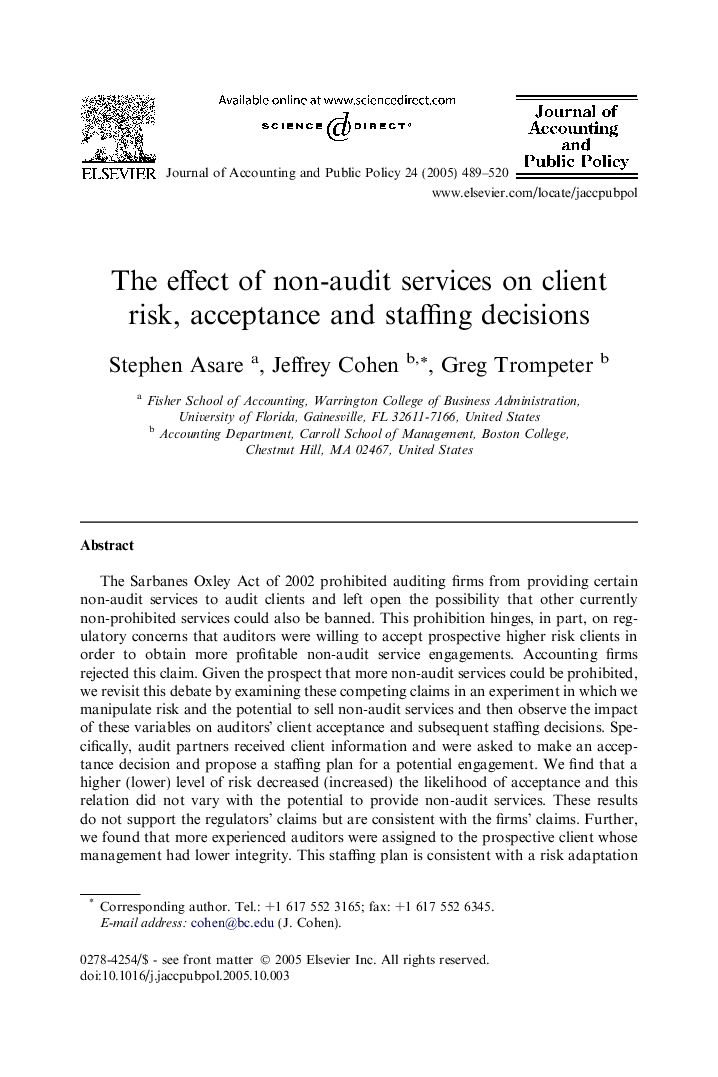| Article ID | Journal | Published Year | Pages | File Type |
|---|---|---|---|---|
| 10489652 | Journal of Accounting and Public Policy | 2005 | 32 Pages |
Abstract
The Sarbanes Oxley Act of 2002 prohibited auditing firms from providing certain non-audit services to audit clients and left open the possibility that other currently non-prohibited services could also be banned. This prohibition hinges, in part, on regulatory concerns that auditors were willing to accept prospective higher risk clients in order to obtain more profitable non-audit service engagements. Accounting firms rejected this claim. Given the prospect that more non-audit services could be prohibited, we revisit this debate by examining these competing claims in an experiment in which we manipulate risk and the potential to sell non-audit services and then observe the impact of these variables on auditors' client acceptance and subsequent staffing decisions. Specifically, audit partners received client information and were asked to make an acceptance decision and propose a staffing plan for a potential engagement. We find that a higher (lower) level of risk decreased (increased) the likelihood of acceptance and this relation did not vary with the potential to provide non-audit services. These results do not support the regulators' claims but are consistent with the firms' claims. Further, we found that more experienced auditors were assigned to the prospective client whose management had lower integrity. This staffing plan is consistent with a risk adaptation strategy for the client with lower integrity. The prohibition of certain non-audit services has been justified on the grounds that auditors might engage in systematic opportunistic behavior. However, our results do not find such behavior which should inform the current PCAOB deliberation over whether additional services should be banned. Alternatively, different justification must be found for the prohibitions.
Related Topics
Social Sciences and Humanities
Business, Management and Accounting
Accounting
Authors
Stephen Asare, Jeffrey Cohen, Greg Trompeter,
